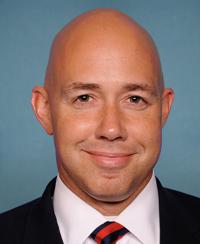H.R. 3819: Prioritizing Revised Operations To Eliminate Cyanobacteria Toxins in Florida Act
This bill, known as the Prioritizing Revised Operations To Eliminate Cyanobacteria Toxins in Florida Act or the PROTECT Florida Act, aims to enhance water management systems in Central and Southern Florida to prioritize public health, specifically focusing on the prevention of cyanobacteria toxins. Below are the main components of the bill:
Management of Water Systems
The bill directs the Assistant Secretary of the Army for Civil Works to instruct the Army Corps of Engineers to make modifications to the management of water infrastructure in Central and Southern Florida. The primary goal is to ensure that public health considerations are integrated into all aspects of existing water management projects. These projects include:
- Flood control
- Navigation
- Water supply for agricultural, municipal, and industrial use
- Regional groundwater control and salinity management
- Enhancement of fish and wildlife habitats
- Recreational activities
Definition of Public Health
The bill provides a specific definition of public health, which includes:
- Managing Lake Okeechobee and surrounding systems to reduce the risk of toxic cyanobacteria and harmful algal blooms.
- Preventing the discharge of water containing cyanobacteria or toxins into nearby watersheds.
- Maintaining the stability of the Herbert Hoover Dike.
- Adhering to existing water quality laws and regulations.
- Ensuring proper water quality and volume reaches the Everglades and associated natural habitats.
Modification of Operations
All current project operations must be modified to ensure that public health is prioritized for all citizens, especially those downstream who may be affected by the management decisions.
Master Operational Manual
The Secretary of the Army is tasked with updating or creating a Master Operational Manual that will outline how the various water management projects interact and will be managed collectively with a focus on public health and Everglades restoration. This manual must be regularly updated as new management projects are added.
Study on Pollution and Nutrient Loading
The bill mandates a study, conducted in partnership with the National Academies of Sciences, to investigate:
- The sources and impacts of pollution and nutrient loading in the region.
- Impact of historical agricultural practices on water quality and ecological restoration efforts.
- Proposals for addressing the pollution's effects on downstream watersheds.
Legal Protections
The bill clarifies that it will not alter existing legal agreements, including:
- The Water Rights Compact between Florida and the Seminole Tribe.
- Water quality standards set by the Miccosukee Tribe of Indians.
- State water quality standards and relevant discharge permits.
- Timelines for ongoing restoration projects under established plans.
Funding Restrictions
No federal restoration funds can be used for Deep Well Injection (DWI) of flood or excess waters, addressing concerns regarding water management practices that could lead to public health risks.
Funding Authorization
The bill authorizes the appropriation of necessary funds to implement its provisions, ensuring that adequate financial resources are allocated to manage the changes effectively.
Relevant Companies
None found
This is an AI-generated summary of the bill text. There may be mistakes.
Sponsors
1 sponsor
Actions
3 actions
| Date | Action |
|---|---|
| Jun. 07, 2025 | Referred to the Subcommittee on Water Resources and Environment. |
| Jun. 06, 2025 | Introduced in House |
| Jun. 06, 2025 | Referred to the House Committee on Transportation and Infrastructure. |
Corporate Lobbying
0 companies lobbying
None found.
* Note that there can be significant delays in lobbying disclosures, and our data may be incomplete.
Potentially Relevant Congressional Stock Trades
No relevant congressional stock trades found.
